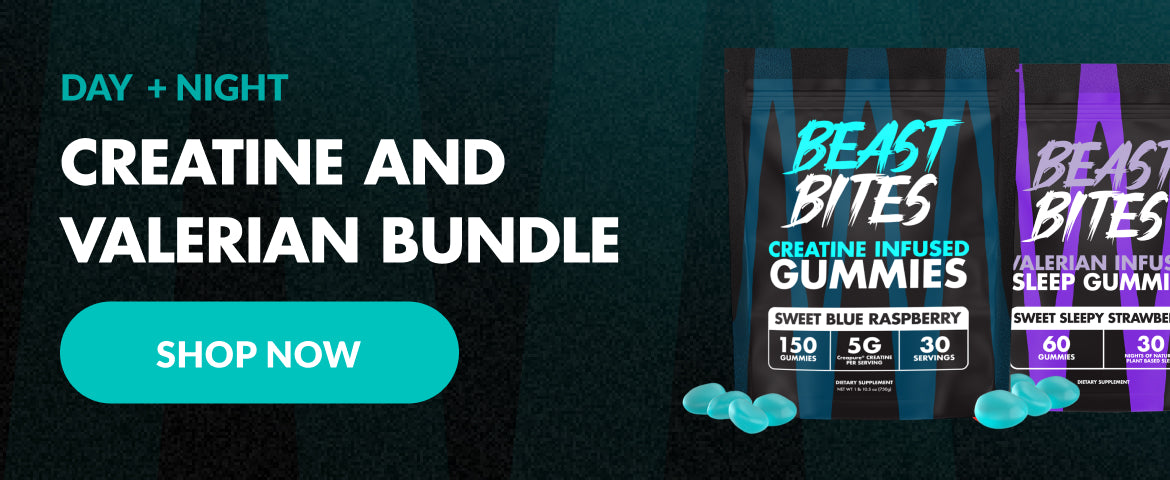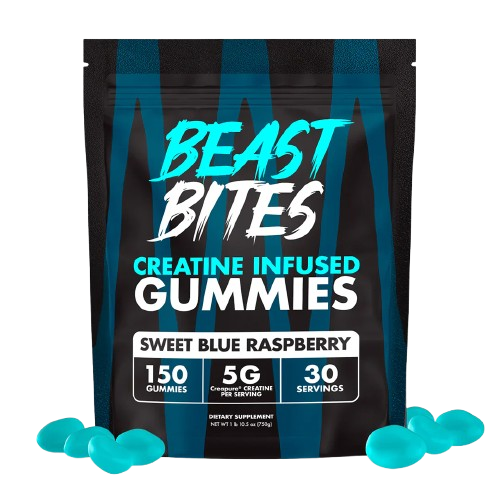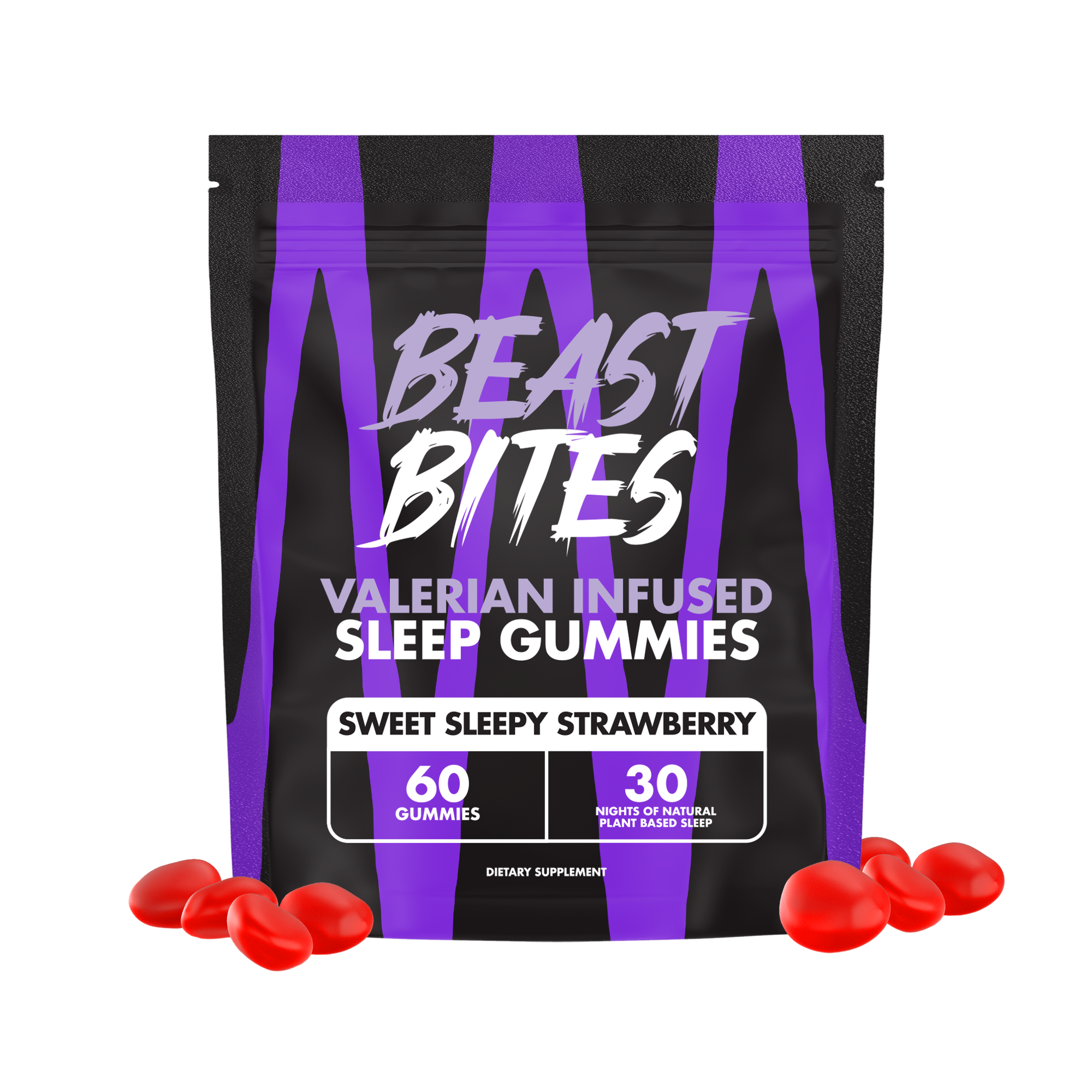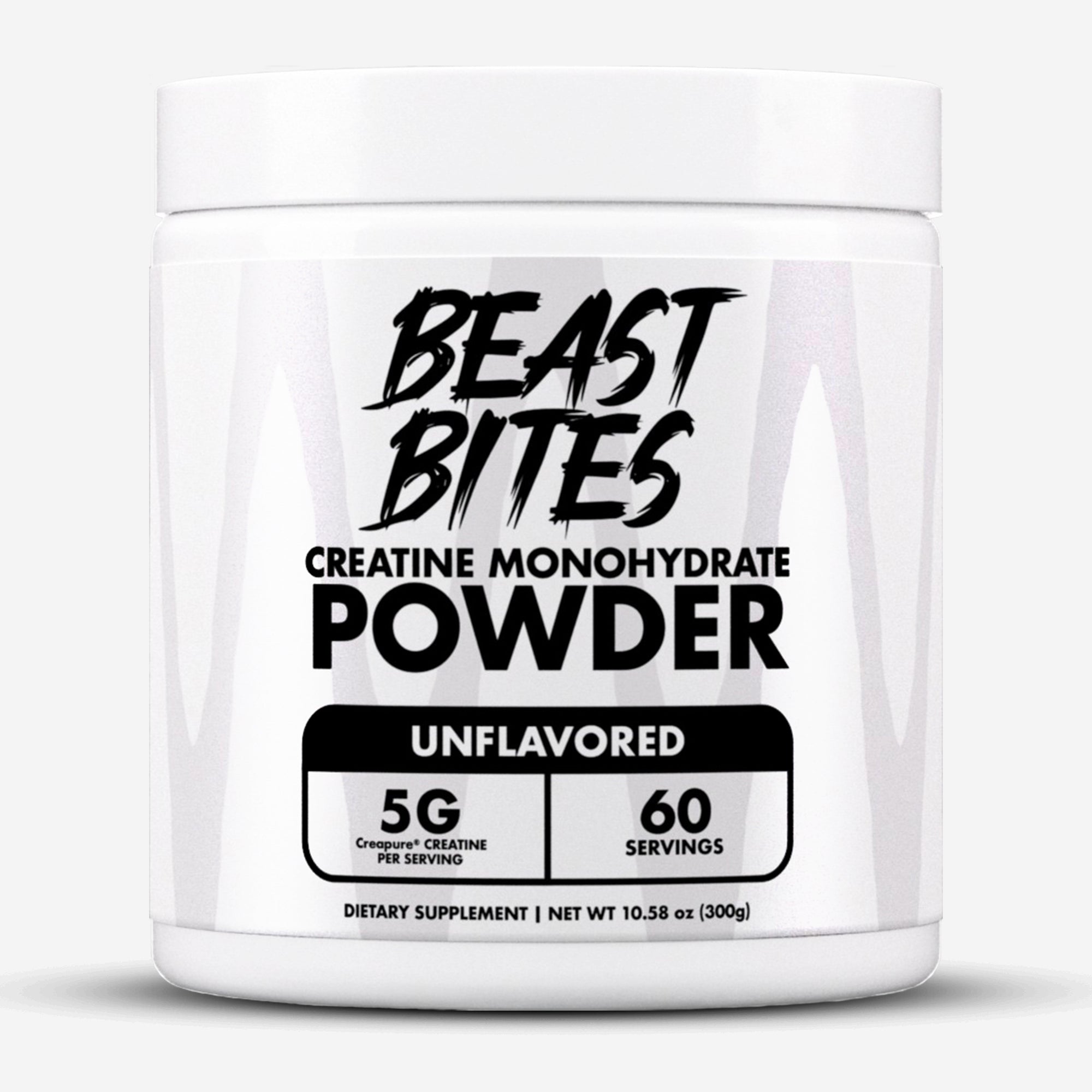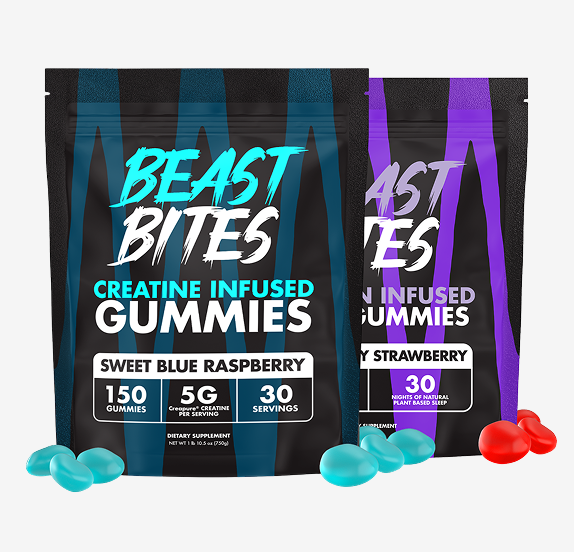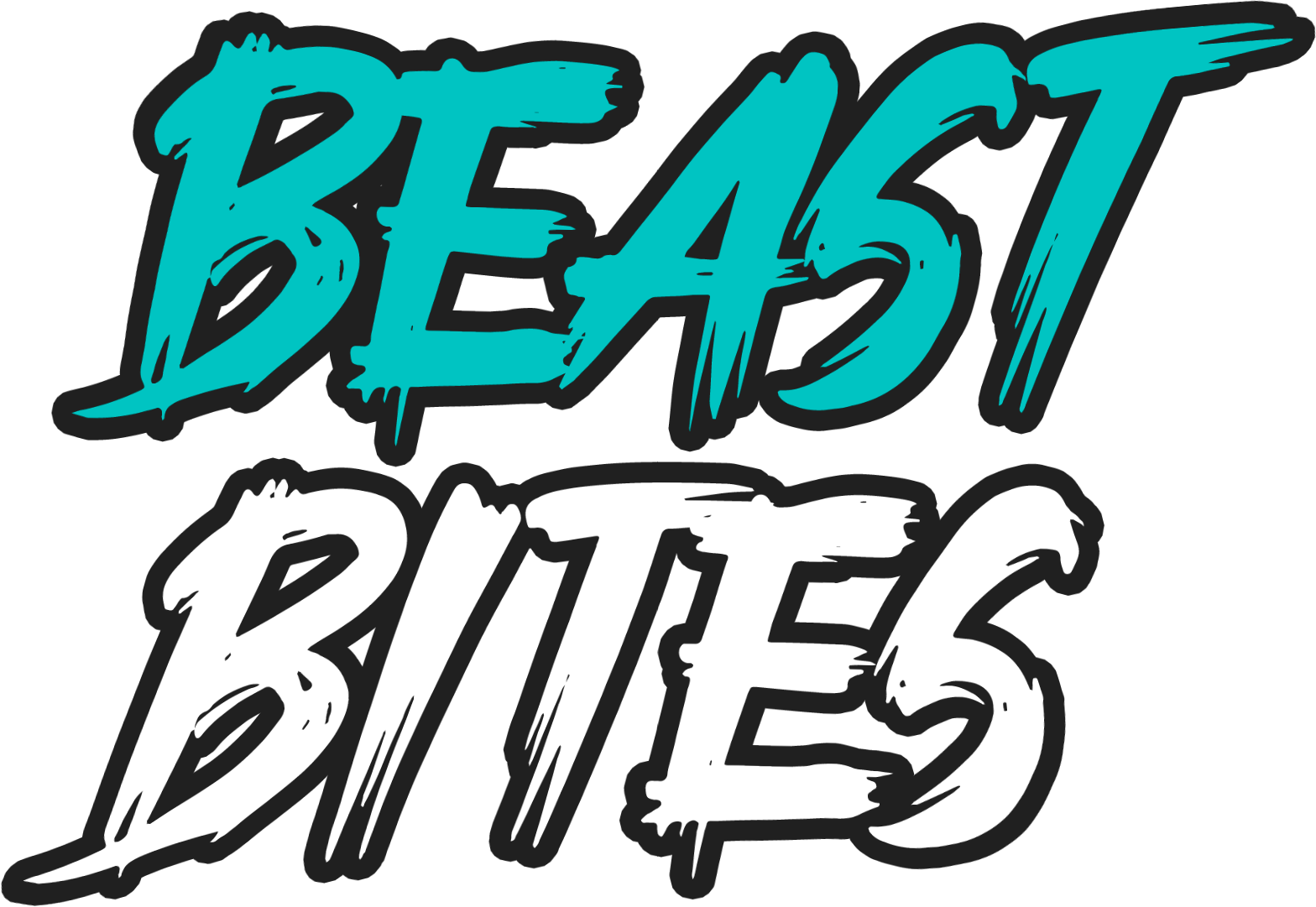Workout supplements and muscle growth supplements are related categories of dietary supplements, but they serve different purposes and may contain different ingredients. Understanding the differences between the different types of supplements can help you make informed decisions about your fitness and nutritional goals.
This post offers a clear breakdown of how these supplements differ and the purpose that they each serve. Spoiler alert: Because of its ability to enhance performance, encourage muscle growth, and ease your workout recovery, creatine is often an ingredient in all types of workout supplements and has the research to show how this one ingredient can be a powerhouse for your fitness goals.

Improving Performance with Pre-Workout Supplements
As the name implies, pre-workout supplements are designed to be consumed before a workout to enhance energy, focus, and endurance. They often contain ingredients such as caffeine, beta-alanine, creatine, and amino acids.
If your goal is to improve overall workout performance, these supplements can offer you more endurance and energy, especially when performing tough workouts at high intensities. This list breaks down how each ingredient works and their impact on your body so you can find a supplement that is the right fit for you:
- Caffeine: Provides energy and enhances alertness
- Beta-Alanine: May help buffer lactic acid, reducing muscle fatigue
- Creatine: Supports energy production during high-intensity activities
- Amino Acids (e.g., BCAAs): Can assist with muscle protein synthesis and reduce muscle breakdown
Pre-workout supplements aim to boost energy levels, mental focus, and physical performance during exercise, optimizing the quality of your workout session.
Getting a Boost from Post-Workout Supplements
Taking workout supplements after you exercise or lift plays a crucial role in supporting recovery and maximizing the benefits of a workout. These supplements are designed to be taken after you work out to replenish nutrients, aid in muscle repair, and promote recovery. While there may be some overlap with muscle growth supplements, post-workout supplements often have a more immediate focus on recovery.
Post-workout supplements typically include:
- Protein supplements: Similar to muscle growth supplements, post-workout nutrition often includes protein supplements to provide the necessary amino acids for muscle repair and recovery. Whey protein, in particular, is rapidly absorbed, making it a popular choice for post-exercise protein intake.
- Carbohydrates: Post-workout supplements may contain carbohydrates to replenish glycogen stores depleted during exercise. Carbohydrates are essential for restoring energy levels and supporting recovery.
- BCAAs (branched-chain amino acids): BCAAs, especially leucine, can be included in post-workout supplements to further support muscle protein synthesis and reduce muscle breakdown.
- Electrolytes: Some post-workout supplements include electrolytes such as sodium, potassium, and magnesium to help replace electrolytes lost through sweat during exercise. Electrolytes are important for hydration and muscle function.
- Creatine: Creatine is often associated with pre-workout supplementation, but it can also support recovery and ongoing muscle development.
The purpose of post-workout supplements covers a wide range of benefits, including:
- Muscle repair and recovery: The primary purpose of post-workout supplements is to facilitate the recovery process by providing essential nutrients. This includes supplying amino acids for muscle protein synthesis, replenishing glycogen stores, and addressing hydration needs.
- Reducing muscle soreness: Some ingredients in post-workout supplements, such as BCAAs and anti-inflammatory compounds, may contribute to reducing muscle soreness and inflammation after intense exercise.
- Optimizing nutrient timing: Consuming nutrients in the post-workout period is often considered a strategic approach to take advantage of the body's heightened responsiveness to nutrient uptake. This window, sometimes referred to as the "anabolic window," is believed to be optimal for nutrient absorption and utilization.
When considering the right post-workout supplement, factor in:
- Hydration: Water is often part of the delivery system for post-workout supplements, but hydration can turn into an afterthought. Although you may be focused on supplements, you also have to be mindful of hydrating properly after your workout. Adequate hydration is crucial for recovery. While not a supplement per se, consuming water or an electrolyte-rich beverage post-workout is an important component of the recovery process.
- Individual needs: The specific composition of post-workout supplements can vary based on individual needs, the type of exercise performed, and overall dietary habits. Personalization is key, and individuals may choose supplements that align with their goals and preferences.
- Whole foods: While supplements can be convenient, whole foods should remain a fundamental part of post-workout nutrition. Real food sources like lean proteins, carbohydrates, and hydrating beverages contribute valuable nutrients.
Post-workout supplements are an integral part of the overall framework for optimizing exercise performance, recovery, and muscle development. Their composition is often tailored to address the immediate needs of your body after intense physical activity and should complement a well-balanced diet that includes a variety of nutrient-rich foods.
Building Mass with Muscle Growth Supplements
Achieving optimal muscle growth involves a combination of targeted training, proper nutrition, and strategic supplementation. Muscle growth supplements play a pivotal role in providing the essential nutrients needed to support muscle repair, protein synthesis, and overall recovery after intense workouts.
This list details key components of muscle growth supplements, shedding light on how they contribute to enhancing strength, promoting lean muscle mass, and maximizing the benefits of dedicated training regimens:
- Creatine: Creatine is a compound that supports the regeneration of adenosine triphosphate (ATP), the energy currency of cells. It is well-researched for its role in enhancing strength, power, and muscle growth.
- Protein supplements: Protein is essential for muscle repair and growth. Protein supplements, such as whey protein, casein protein, or plant-based protein, provide a convenient source of amino acids necessary for muscle protein synthesis.
- Branched-Chain Amino Acids (BCAAs): BCAAs, including leucine, isoleucine, and valine, are essential amino acids that play a crucial role in muscle protein synthesis. BCAA supplements are often used to support recovery and muscle growth.
- Beta-Alanine: While commonly found in pre-workout supplements, beta-alanine can also be used as a standalone supplement to support muscle endurance and reduce muscle fatigue.
Muscle growth supplements are specifically designed to provide the nutrients and compounds necessary for the development and repair of muscle tissue. They support the processes of muscle protein synthesis and recovery after resistance training.
The key differences between workout supplements and muscle-building supplements include:
- Timing of consumption: Workout supplements, especially pre-workouts, are typically consumed before exercise to enhance performance. Muscle growth supplements like protein and creatine are often consumed around the workout (pre- or post-workout) to support muscle repair and growth.
- Focus on energy vs. muscle protein synthesis: Workout supplements primarily focus on providing energy, enhancing endurance, and optimizing workout performance. Muscle growth supplements, on the other hand, aim to support the processes of muscle protein synthesis, recovery, and overall muscle development.
- Ingredients and formulation: While there may be some overlap in ingredients, the specific formulation and emphasis differ. Muscle growth supplements are more centered on providing essential nutrients for muscle development, while workout supplements are geared toward acute performance enhancement.
Individual needs and goals vary, and some supplements may serve dual purposes. Additionally, a well-balanced diet with adequate protein intake and overall nutrition is fundamental for both workout performance and muscle growth.
Whether you want to support your workout, build muscle, or aid your recovery, creatine can align with individual fitness goals and needs. So if you’re looking for workout supplements that taste great and offer well-researched support for muscle development, performance enhancement, and muscle recovery, try the creatine gummies from Beast Bites.

